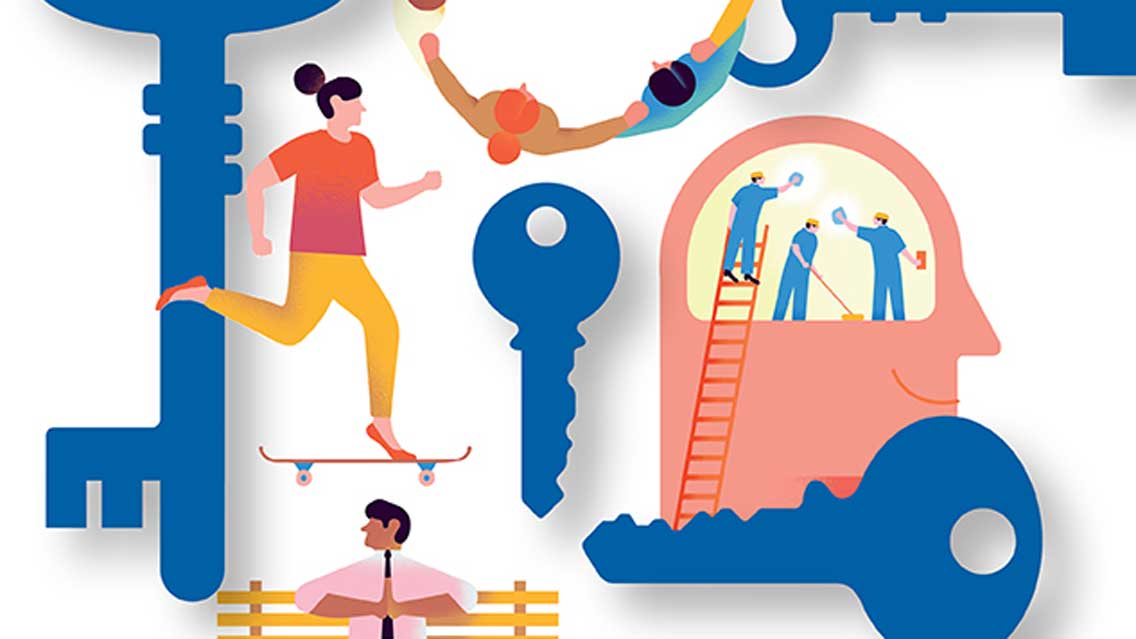Hello!
 Staying in the best of health is not always possible, but it’s something many of us tend to take for granted. However, getting our mind and body healthy and in shape will do wonders to stave off some of the effects of old age.
Staying in the best of health is not always possible, but it’s something many of us tend to take for granted. However, getting our mind and body healthy and in shape will do wonders to stave off some of the effects of old age.
The problem for many is that this is not an easy process and one that takes years of commitment to see any results.
Luckily, habits are simple things to build. Some may require more effort than others initially, but your body will thank you for it when you’re old and grey.
Don’t Skimp on Mental Health Checkups
Understanding your health and what problems you may be facing is the first step to getting healthy, and your mental health is a key factor in your overall long-term health. Going to a doctor for a checkup can help identify problems before they become illnesses and help pick up existing conditions before they become serious or life-threatening.
Cognitive assessments, used to evaluate your mental health and find cognitive problems, are offered by many healthcare practitioners and should be considered as part of your regular check-up as you get older. Should the doctors pick up any issues, exploring topics such as what is dementia care can help you learn more about dementia and other progressive brain disorders that are fast becoming commonplace in America?
Manage Stress
 Focusing on all the parameters of 21st-century life can lead to some scenarios where you are overloaded and unable to carry out the tasks at hand effectively.
Focusing on all the parameters of 21st-century life can lead to some scenarios where you are overloaded and unable to carry out the tasks at hand effectively.
Stress is not bad for us when managed, but when we let issues in our lives affect us mentally or physically, then it can certainly take its toll. Stress can lead to negative feelings like anger, worry, depression, irritability, or a decrease in focus.
Stress can also materialize as physical effects like trouble sleeping, stomach issues, weight problems, muscle tension, headaches, and even a weakened immune system, which can lead to more sick days overall.
Manage your stress by paying attention to how you are feeling and taking a step back when you need some calm, by getting active and eating healthily, and don’t let problems fester. Tackle issues before they become a stress factor and take years off your life.
Balanced Meals & Diet
If you realize that a proper diet benefits you not only physically but mentally as well, then you’re ready to enjoy a clear mind and strong mental fortitude. Your diet can also affect your learning abilities, so skipping meals or eating junk food can directly affect your performance at work.
Concentrating on consuming a diet full of fruits and vegetables has been proven to provide massive health benefits to the human body and in reducing the risk of several chronic diseases. However, big diet changes can be difficult and depressing, and can also overwhelm gut health. So, instead of making big changes, look at changing a single part of your diet at a time, day by day or week by week.
Making simple changes, like swapping from white bread to brown bread, can provide your body with more B vitamins, fiber, and important minerals that aren’t found in refined grains, as well as being more filling.
Prioritize a Good Night’s Sleep
 A good night’s sleep is as important for your health as a balanced diet. Ensuring you get enough good quality sleep will help improve your general health, mood, and cognitive abilities. If you don’t get enough sleep, or your sleep is disturbed, then you increase your chances of suffering from diseases and disorders such as depression, heart disease, strokes, obesity, and dementia.
A good night’s sleep is as important for your health as a balanced diet. Ensuring you get enough good quality sleep will help improve your general health, mood, and cognitive abilities. If you don’t get enough sleep, or your sleep is disturbed, then you increase your chances of suffering from diseases and disorders such as depression, heart disease, strokes, obesity, and dementia.
A healthy sleep habit does not only mean how much sleep you get or the quality of your sleep but also your sleep schedule, which should be consistent. Once you balance all three of these important factors, you can start enjoying the positive effects of quality sleep.
Exercise Makes All the Difference
 Being active has been proven to improve your health and mental fortitude, and no matter your age or condition, it’s never too late to start improving your physical health. Being active doesn’t necessarily mean going out and running every day. Just putting a bit of extra effort into daily tasks, like taking stairs over the elevator, or walking over to talk to a colleague instead of phoning or mailing them, can make a difference.
Being active has been proven to improve your health and mental fortitude, and no matter your age or condition, it’s never too late to start improving your physical health. Being active doesn’t necessarily mean going out and running every day. Just putting a bit of extra effort into daily tasks, like taking stairs over the elevator, or walking over to talk to a colleague instead of phoning or mailing them, can make a difference.
For an extra boost, you can strap lightweight bags to your limbs and actively improve your strength during your normal routine with almost no conscious effort. Exercise doesn’t need to be a punishment. Try to find ways to make your exercises more enjoyable, like by watching a show you enjoy or listening to music while you exercise.
Also read:
- Top 7 Best Tips How Art Helps to Maintain Good Health
- Financial Gains due to Understanding Politics
- Key Fleet Management Considerations
Cut Out Toxins
 Foods and drinks that include highly addictive but very tempting substances like caffeine, sugar, and alcohol, are all detrimental to our health in the long term. For example, alcohol is packed with sugars and calories that your body quickly stores as glucose, so your body will produce more insulin to take care of all this additional glucose.
Foods and drinks that include highly addictive but very tempting substances like caffeine, sugar, and alcohol, are all detrimental to our health in the long term. For example, alcohol is packed with sugars and calories that your body quickly stores as glucose, so your body will produce more insulin to take care of all this additional glucose.
If this cycle continues and repeats too frequently, you can develop type II diabetes.
Another side effect of all the calories and sugar is that you’ll suffer higher cholesterol, which can lead to clots, strokes, high blood pressure, and heart attacks. Quitting habitual drinking alone could lead to as much as a five percent decrease in cholesterol during the first month. It may be difficult initially, but your improved quality of life is well worth the effort.
Your continued good health is vital for a happy and productive life. You don’t want to be in your old age, looking back at the years you took for granted and wishing you had spent them taking better care of your health.
Making positive changes to your health routine can often be difficult at first, but habits are built in weeks. So, if you give any new routines or changes the attention and effort they deserve over the first month, then it will be much easier to continue after that. Getting healthy won’t happen in days, months, or perhaps even years, but your future self will thank you for the commitments and improvements you make today.
Thank you!
Join us on social media!
See you!






